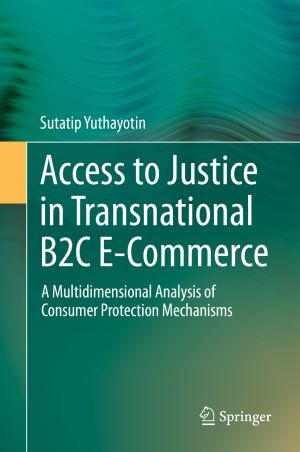
This book identifies institutional mechanisms that can be used to promote consumer confidence in direct online sales with businesses (B2C e-commerce). It argues that enhancing the access to justice in a multidimensional sense can potentially offer an effective means of boosting consumer confidence. It introduces a conceptual framework for a multidimensional approach to access to justice in the context of consumer protection, describing the various reasonable criteria needed to satisfy consumer demands in B2C e-commerce. The framework, which reflects all essential aspects of consumers' expectations when they engage in online transactions, provides a benchmark for the evaluation of various consumer protection mechanisms.
Based on an analysis of different mechanisms and using the framework's criteria, the practice of private ordering, which does not rely on the creation of rules of law but rather on the use of technology as a solution, appears to offer a meaningful way to enhance access to justice in B2C e-commerce. However, though private ordering holds considerable potential, certain weaknesses still need to be eliminated. This book demonstrates how private ordering can be successfully implemented with the help of an intermediary, a neutral third party that plays an integral part in the collaborative task of facilitating various aspects of private ordering, thus helping to limit the risks of failure and ensuring a fairer market setting. In order to move forward, it argues that the state, with its wealth of material resources and incentive options, is the institution best suited to acting as an intermediary in facilitating private ordering. This promising proposal can improve consumer protection, which will in turn boost consumer confidence.